BBC Radio 2 head of music Jeff Smith talks about their broad variety of pop songs. “They may not all test brilliantly, but they’re not gonna’ hurt anybody.
The UK’s most listened-to station is programming music based on gut feeling and not on research, we heard in the music scheduling session of the Radio Festival. They do play Adele, too. But in many cases BBC Radio 2 is not following today’s radio fashion. So I was keen to learn more about their music scheduling practices from music director Jeff Smith.
Music library: 10.000 songs
Where many commercial stations focus on 500 great testing songs or less, BBC Radio 2 plays a wide variety of melodic music from the 1950s till today. The database includes no less than 10.000 songs, categorized by era. BBC Radio 2 has 4000 to 5000 songs in active music rotation. “I regularly rotate those records; they are being freshed up all the time”, Smith explains. The station’s music programming is based on gold songs, but does include a fair amount of currents and recurrents.
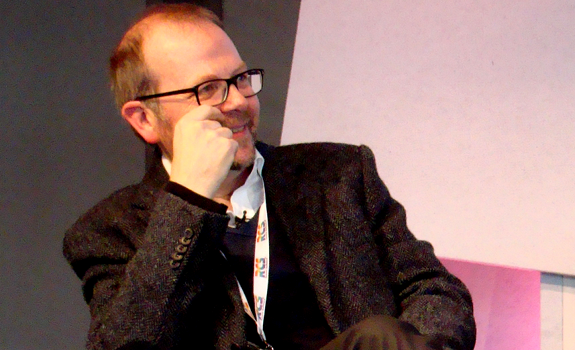
Jeff Smith, head of music BBC Radio 2, has a music database of 10.000 songs at his disposal (photo: Thomas Giger)
Gold categories: two levels
BBC Radio 2 has two levels for gold song rotation for music scheduling:
- Level 1: biggest songs (these play “every couple of months”)
- Level 2: additional songs (these come around “once or twice a year”)
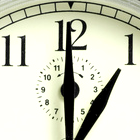 Openers are level 1 songs
Openers are level 1 songs
As the station doesn’t do music research, the decision if a song goes into level 1 or level 2 is based on gut instinct. “It’s what we think are the biggest songs for our audience.” The top of the hour always opens with a level 1 gold song, and coming out of “junctions and trails” a top classic is being played as well. Therefore the station starts every music sweep with a familiar song.
UK radio slang explained
- Junctions: bridges from one show into the next, which usually happens on the top of the hour (:00), but sometimes also at the bottom of the hour (:30).
- Trails: another word for promos. BBC Radio 2 has fixed stopsets for station promotion spots at :20 and :50 past the hour. They don’t play commercials.
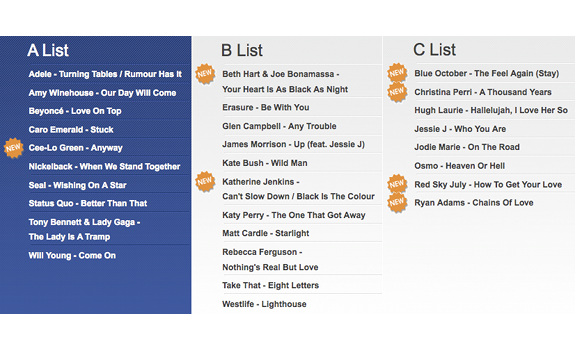
BBC Radio 2 current music playlist of November 19, 2011 – consisting of almost 25% new added songs (list: BBC)
Current category: 3 levels
BBC Radio 2 has three levels for current song rotation in their music playlist:
- A list: between 15 and 20 plays a week
- B list: between 5 and 10 plays a week
- C list: up to 5 plays a week
 Recurrents and special currents
Recurrents and special currents
Recurrents are for BBC Radio 2 tracks of the last 18 months, that have been played on the station’s A-list. Apart from recurrents and A, B and C currents, the station features a Record of the Week and Album of the Week. Smith heads a weekly music meeting with radio producers of the station. Together they decide which songs will be added to the A, B and C list and get airplay. Here’s a link to the current BBC Radio 2 playlist.
What are your criteria for the A-list; the currents that you play a lot?
“The A list records are what we think are the best; the ones that about 20 producers think we can play on all our shows and fit the melodic feel of the network. Those records are being played about every five hours. We have quite short and quite long shows, so we have a medium separation.”
“They may not all test brilliantly,
but they’re not gonna’ hurt anybody”
How do you use Powergold music scheduling software? Do you schedule manually, or automated?
“It’s automated with Powergold initially, based on the mentioned criteria. Then a music system administrator goes through the log, so if a producer can’t get to it in time, we can get that live on air. But more often than not, the producers will tweak 25% of their show’s playlist. They move around or change some records, because they feel that they suit that particular presenter more or less than the others.”
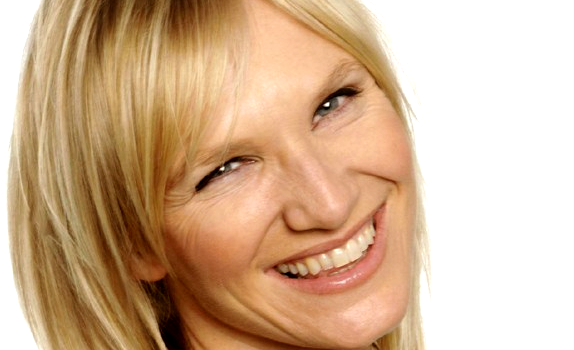
Radio & TV personality Jo Whiley is on-air from Monday-Thursday at BBC Radio 2 (photo: Insanity Artists Agency)
Can it be dangerous to move and replace songs, as listeners may have a clock in their mind? Background for this question: could the habit of moving and replacing songs – especially if it alters the category and level sequence – weaken (subconscious) listener expectations of the music balance?
“No, they don’t have a clock in their mind. Our listeners want familiarity, and hear some new relevant music. As long as we make that work, and we follow that broad framework, I’m happy with that. Different deejays have different ways of working; different producers have different ways of working. It gives freedom. And at the end of the week, we still get 15-20 plays for an A record and so on.” In his opinion, the policy for new music on BBC Radio 2 is well executed.
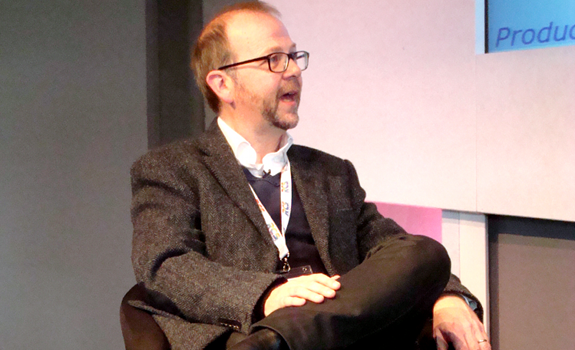
Head of music Jeff Smith grants BBC Radio 2 producers freedom to tweak their show’s playlist (photo: Thomas Giger)
Classics are not power-played
As for the gold songs, Jeff Smith thinks that tweaks by presenters and producers can’t do much damage. “We have such a tremendous choice and all our presenters know what’s familiar. There are so many big songs, eras and genres. They may not all test brilliantly, but at the rate we play them, they’re not gonna’ hurt anybody. We’re not power-playing them here, like you would do on commercial radio.”
If you would claim ‘more variety’, that would actually be true. You’re not one of those stations who just say it and still play the same 300 songs :-).
“Yeah! And we don’t say things like that, because actually you’re saying these things to let people say them back to you, rather than saying it because you actually mean it. But we could, because we mean it and we do it.”





Dear Mrs. Dalkin, hi Sylvia,
Thank you for mentioning the article, I’ll read it for sure and look into your question regarding Daniel O’Donnell’s music with the music director of Radio 2 – he’ll be able to provide a detailed answer.
Have a nice day, and talk to you soon.
Best regards,
Thomas
Further to an article in a recent Daily Mail headed ‘Is Radio 2 Turning Too Young?’ my response is a definite ‘yes’. It certainly isn’t middle-of-the-road / easy listening anymore.
I would be very interested to know how many of Daniel O’Donnell’s tracks were played during the last four weeks on BBC Radio 2 – his music is very middle-of-the-road / easy listening. He is very popular, and can still fill the Royal Albert Hall or the Bournemouth International Centre to name but a couple of venues, but as far as I hear, he gets very little airtime on the BBC.
I look forward to your response with interest!